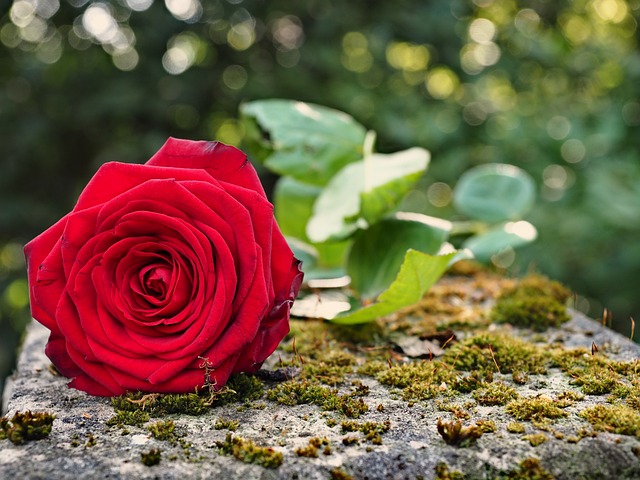Traditional Funerals in Albury Wodonga have a rich history that reflects the region’s unique blend of indigenous customs and European settler traditions. Initially, funerary practices were guided by environmental respect and community roles among indigenous communities. With the arrival of Europeans and the spread of Christianity, new burial rites and cemetery establishments emerged, influenced by Christian faiths. Over time, these traditional funerals have evolved to embrace a multicultural mosaic, incorporating diverse religious and cultural elements, while funeral homes remain integral in maintaining these traditions, ensuring each ceremony is unique, meaningful, and respectful of the collective heritage and values. Today, Albury Wodonga’s funeral practices continue to evolve, offering a balance of historical customs with personalized touches that celebrate individual lives, all while upholding the area’s rich funeral heritage.
In the heart of Australia’s Murray-Darling Basin, the cities of Albury and Wodonga stand as a testament to their rich history and enduring community spirit. This article offers a comprehensive exploration of the tradition of funerals in Albury Wodonga, delving into the historical evolution, key components of a traditional funeral service, cultural significance, and modern considerations that shape these poignant ceremonies. As we traverse through the past to understand the present, we will guide you through planning a traditional funeral, incorporating local traditions, respecting religious beliefs, and ensuring personal touches that honor the life and legacy of your loved one. A traditional funeral in Albury Wodonga is not merely a service; it’s a cherished practice steeped in local heritage and community values, reflecting the enduring connection between past and present. This article serves as a complete guide to appreciating, understanding, and planning this meaningful farewell within the region, highlighting why many families continue to choose traditional funerals for their loved ones.
- Historical Evolution of Funerals in Albury Wodonga: A Retrospective Look
- – The Earliest Practices: A Glimpse into the Past
- – Changes Over Time: Adapting to Social and Religious Shifts
Historical Evolution of Funerals in Albury Wodonga: A Retrospective Look

The historical evolution of funerary practices in Albury Wodonga reflects a tapestry of cultural influences, religious beliefs, and community traditions that have coalesced over time to shape the manner in which the region honors the deceased. Initially, indigenous Australian funeral customs were practiced, often involving rituals that respected the natural environment and the significance of the deceased’s role within the community. With the arrival of European settlers, their own burial traditions began to intertwine with these existing practices. The introduction of Christian faiths brought new ceremonies and the establishment of cemeteries, which became a testament to the collective grieving process and the commemoration of life’s end.
As time progressed, the traditional funerals in Albury Wodonga evolved to incorporate diverse elements from various religious denominations and cultural backgrounds present within the region. This evolution has resulted in a rich and varied practice that honours the deceased while providing comfort and ritualistic significance to the living. Today, traditional funerals in Albury Wodonga remain a central aspect of the community’s approach to mourning and remembrance, offering a sense of continuity and tradition that many families continue to value. The funeral homes in Albury Wodonga play a crucial role in facilitating these services, ensuring that each ceremony is a fitting tribute to the life that has been lived, while also reflecting the shared cultural heritage of the region.
– The Earliest Practices: A Glimpse into the Past

Traditional funerals in Albury Wodonga have a rich history that intertwines local customs with universal rituals marking the passage from life to the afterlife. The earliest practices, reminiscent of the British colonization influence, were characterized by solemn ceremonies deeply rooted in Christian faith and community participation. These early services often included religious hymns, eulogies that celebrated the deceased’s life, and a procession to the burial site—all elements that continue to shape traditional funerals today. The fusion of cultural practices with religious rites created a unique framework for mourning and remembrance in this border region between New South Wales and Victoria.
Over time, the traditions associated with funerals in Albury Wodonga have evolved yet retained their core principles. The community’s respect for the deceased and support for the grieving families remain central. Funeral homes in Albury Wodonga offer a range of services that honour these longstanding customs while also providing options for personalization to reflect individual or familial legacies. These funeral homes are the custodians of this tradition, ensuring that each service not only honours the deceased but also upholds the dignity and solemnity that define a traditional funeral. The enduring nature of these practices underscores their importance in the cultural fabric of Albury Wodonga, where they continue to be a testament to the community’s collective memory and shared values.
– Changes Over Time: Adapting to Social and Religious Shifts

The tradition of funerals in Albury Wodonga has a rich tapestry woven from the social and religious fabric of the region. Over time, these services have adapted to reflect significant shifts within the community. In the past, traditional funeral services in Albury were often governed by specific religious denominations, with ceremonies closely adhering to doctrinal guidelines. As societal norms evolved and the community became more diverse, funeral practices naturally adjusted to accommodate a broader range of beliefs and cultural practices. Today, while many families in Albury Wodonga still choose traditional funerals as a way to honour loved ones and observe longstanding customs, there is greater flexibility in how these services are conducted. This evolution ensures that traditional Funerals in Albury Wodonga remain relevant and meaningful within the context of modern societal values while still preserving the essence of the region’s heritage.
Planning a traditional funeral in Wodonga now involves considering a variety of options that balance respect for tradition with personal touches that reflect the life of the deceased. Funeral homes offering traditional services have become adept at providing guidance and options that cater to both the wishes of the family and the expectations of the community. This delicate balance is crucial in maintaining the cultural significance of traditional funerals, which many families continue to value for their emotional and commemorative aspects. The key elements of a traditional funeral in Albury Wodonga—such as the choice of hymns, eulogies, and burial or cremation practices—are often interwoven with personal rituals and symbols, creating a unique and fitting farewell that honors both the individual and the collective memory.
In Albury Wodonga, the tradition of funerals has a rich history that reflects the community’s values and cultural significance. This article has provided a comprehensive overview of what one can expect from a traditional funeral service in this region, including its historical evolution, planning considerations, and the benefits of choosing this time-honored approach. It is evident that traditional funerals in Albury Wodonga continue to hold a special place, not only for the deceased but also for the living, offering solace and a sense of closure. With an understanding of the local customs, costs involved, and the option to personalize services, families can make informed decisions that honor their loved ones’ legacies. As we look back at the practices of the past and adapt to the present, the tradition of traditional funerals in Albury Wodonga remains a meaningful and relevant way to celebrate life, remember the deceased, and support one another through grief. It is clear why many families choose this path, as it not only reflects the deep-rooted culture of the area but also provides a framework for healing and remembrance that is both dignified and personal.
